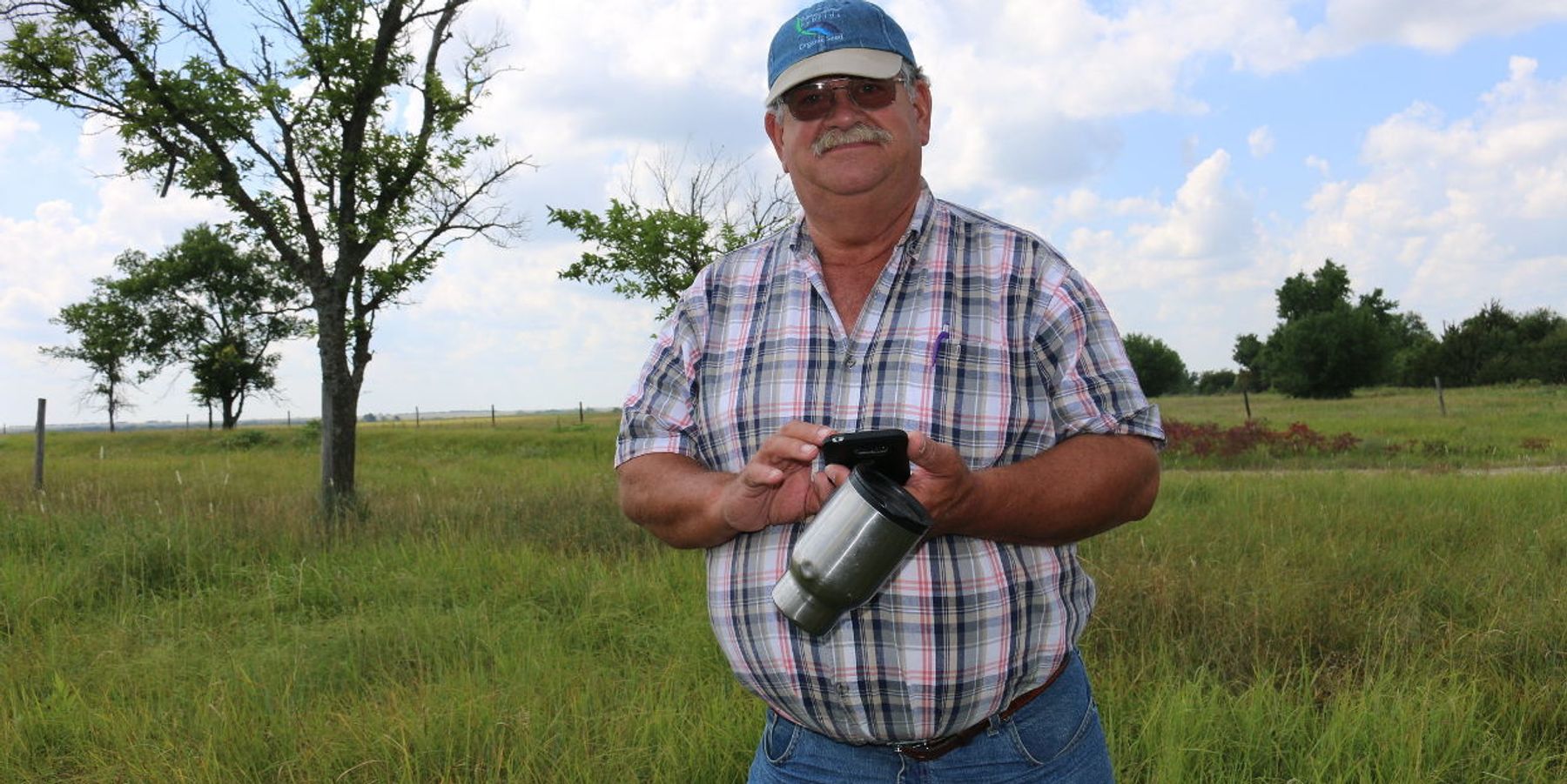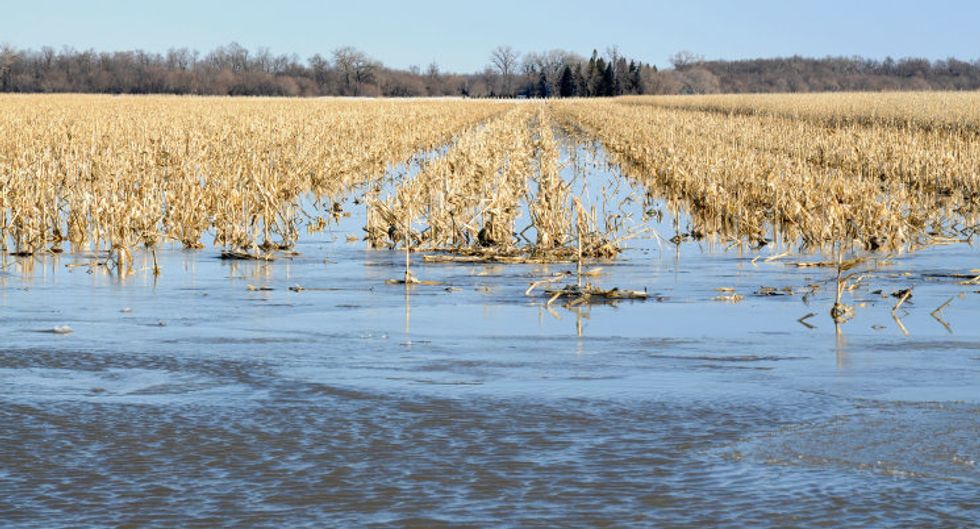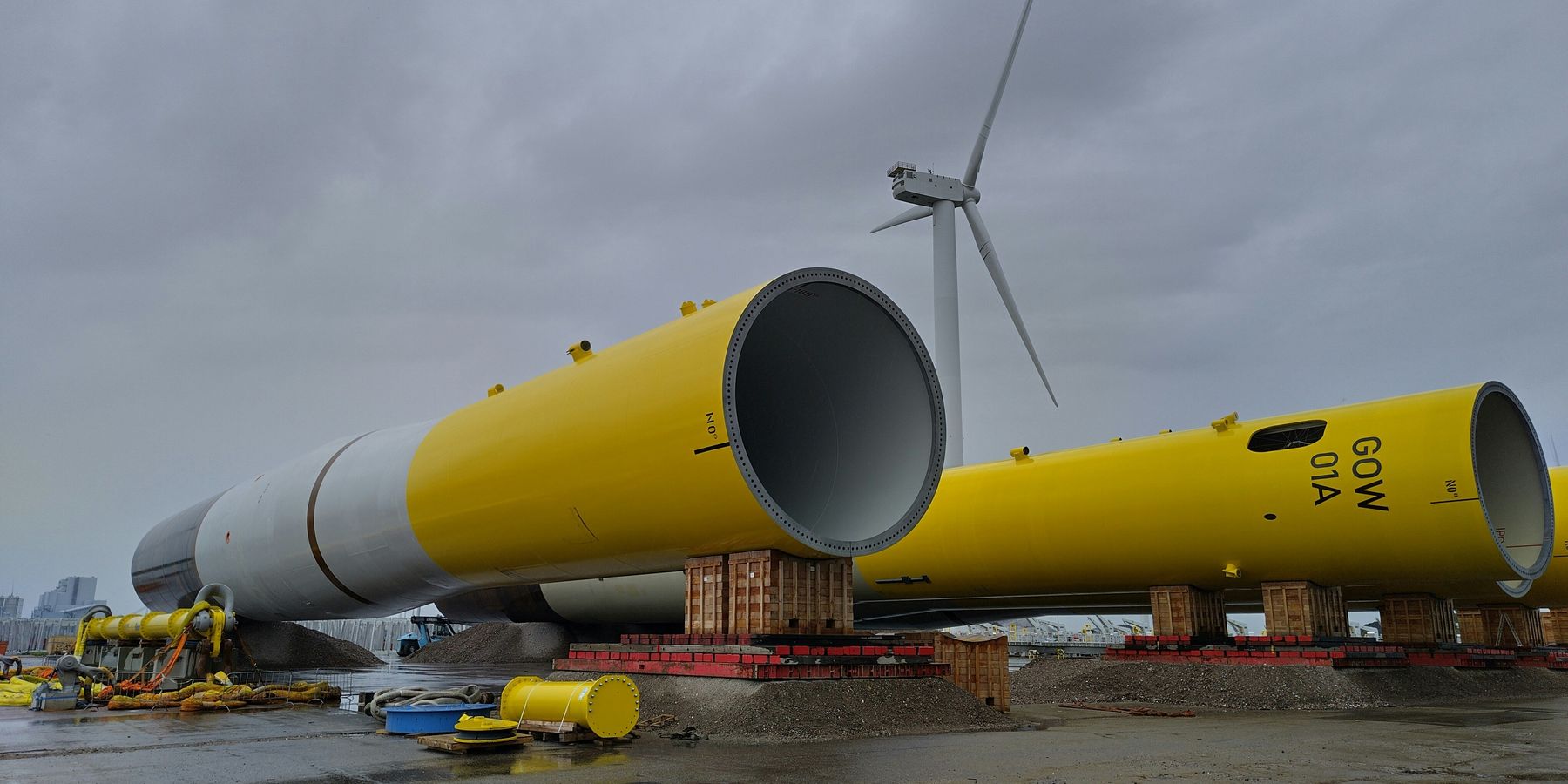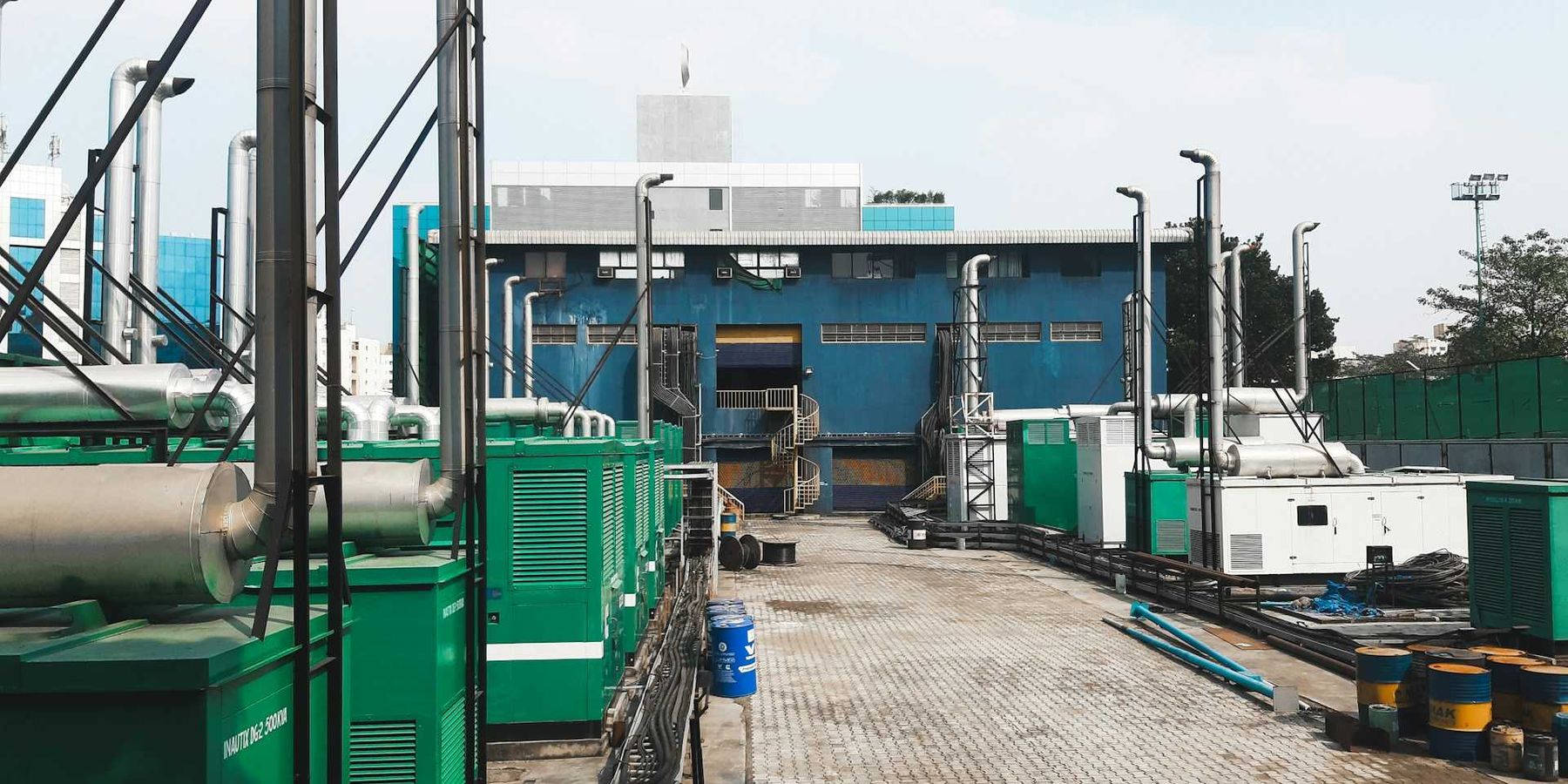
Soggy springs, scorching summers: Higher temperatures taking toll on US staple crops
As a changing climate continues to increase average temperatures in the US, researchers estimate yield losses that could cost billions
Donn Teske has fully planted his 900-acre farm for the season, and now, like other farmers, he'll hope the rest of the season cooperates.
But Teske, a fifth-generation farmer and president of the Kansas Farmers Union, is one of the lucky ones this year—farmers throughout the Great Plains and Midwest are struggling to plant crops due to flooding.
"Planting is just being done now… but it's really too late for corn," Teske told EHN. "Farmers are trying more and more to plant early, before that window closes."
Teske's 900-acre farm in Kansas has been relatively dry, but he's heard from farmers throughout the region whose crops have suffered. "The Missouri River Valley is underwater. They can ride boats on it," he said.
The United States just experienced its wettest 12 months on record. An onslaught of rain in the Midwest and Great Plains has made it difficult for farmers to plant crops like corn and soybeans, which need to be planted before the weather gets hotter and drier during the summer. Farmers have been tweeting using the hashtag #NoPlant19 to show the effects of catastrophic rain.
With fewer crops planted by summertime, farmers are facing smaller crop yields this year. The USDA recently cut their estimate of this year's planted corn area to 89.8 million acres, 3 million acres fewer than March's estimate. Yield estimates are rarely cut this early in the growing season.
A June 17 report from the USDA shows that on average, 92 percent of corn has been planted in key corn-growing states. The week before that, it was only 83 percent. In most years, all corn is planted by now.
Scientists can't pin one bad season on a changing climate. But they have long warned that a changing climate will spur crises like these for farmers by way of more frequent and intense rain, higher temperatures, and longer periods of drought. While it's tricky to separate out how different impacts of climate change affect crops, evidence is growing that higher temperatures could be the key climate change factor to impact food production, overheating crops in summers and creating soggy springs like what's happened in the Midwest.
These changes, scientists warn, could lead to massive decreases for staple crops that bring in billions every year to the U.S.
Temperature tumult
A recent study led by Ariel Ortiz-Bobea, an atmospheric scientist at Cornell University, looked at decades' worth of temperature and soil moisture data to model the yields of six important crops: cotton, maize, sorghum, soybeans, spring wheat and winter wheat.
The researchers confirmed that while soil moisture levels play an important role in crop yields, temperature seems to be the biggest factor. Ortiz-Bobea and colleagues examined county-level crop yield data from 1981-2017 and combined this with temperature and soil moisture data to create models for future crop yields.
They estimated that due to increasingly warmer temperatures, yields for these six crops in the United States could decrease by 8 to 19 percent between 2050-2100 under a mild climate change scenario and 20 to 48 percent under a severe one.
Increasing temperatures seem to have contributed to the heavy rain affecting farmers this spring. Warmer water temperatures in the Gulf of Mexico helped warm the atmosphere, and this caused an increase in water vapor that fell as rain. In addition, temperatures are generally increasing in the Midwest – annual average temperatures have increased by about half a degree Fahrenheit per decade since 1979.
Studies have shown that although farmers may be facing rainier springs, they are also likely to experience hotter, drier summers. Rainy times of the year and geographic areas are likely to become rainier, while drier areas are likely to become drier. There are also interactions between heat and temperature, which complicates trying to look at those two factors individually. "When you get out of the shower, the water evaporates and cools off your skin. The same thing happens on the surface of the Earth. If there's no water to evaporate, basically things heat up more," Ortiz-Bobea told EHN.
The team tried to look at water and temperature separately. Instead of looking at how much it rained in a given area, they looked at soil moisture, which more directly affects plants. "By using soil moisture instead of precipitation, the authors were able to disentangle the effects of temperature and water stress," Elizabeth Vogel, a scientist at the Bureau of Meteorology in Melbourne, Australia, told EHN. Vogel was not involved with the study.
Why heat has such a big effect is still unknown. "The jury's still out. It's not clear why temperature is driving these effects," said Ortiz-Bobea. "Temperature plays a huge role, and we attribute it to heat stress, the effects of which are overwhelming."
What is known: heat can affect plants in many ways depending on its severity. Crops can go through their growth stages more quickly when it's hot, leading to stunted growth and a smaller end product. Under even more extreme heat, a plant's metabolism slows down, and it can't draw up enough water from its roots to overcome the heat.
Irrigation is one way to combat this, but it has drawbacks, especially with potential water shortages in the future. "Irrigation is very useful when it's extremely hot, but most of the crops around the world are not irrigated. And even if you have irrigation channels set up, what if there's no water?" Deepak Ray, senior scientist at the Institute on the Environment at the University of Minnesota, told EHN.
Farmers may be able to combat dry summers by planting crops earlier, but that won't be possible if too much rain falls in the spring, as it did this year.
Barriers to crop diversity

Farmland flooded by Missouri and Red Rivers in North Dakota. (Credit: USDA)
In the future, planting a variety of crops that can thrive in different temperatures and soil moisture levels could help guarantee farmers a yield whatever weather conditions come their way.
Teske said there is a lack of crop diversity in Middle America. "Everybody wants to plant wheat, corn and soy, and other crops are being ignored," he said.
But there are incentives to plant these staple crops. "Why do farmers grow so much corn and soybeans in the United States? A lot of it has to do with public policy," said Ray.
President Trump recently signed an $19.1 billion disaster relief bill that includes more than $3 billion for farmers who have lost crops or been unable to plant them due to flooding. It also includes $558 million for the Emergency Conservation Program, which helps farmers repair land. But it's still unclear just how much farmers will receive for unplanted crops.
In the past, Teske has had to plant crops in unfavorable conditions in order to receive aid. "I understand at this point that in order to collect our share, we're going to have to put a crop in the ground whether it's going to grow or not." said Teske. "I'm still going to have to plant all my soybeans, and that's just wrong. If [the USDA doesn't] change that, and they force us to plant our share, that's just wrong," he said.
On June 28, the U.S. Department of Agriculture (USDA) will release Acreage, an annual survey-based report that shows estimates of planted and harvested crop acreage by state.
The report will help give a better estimate of this year's crop yields – and show how drastic the losses could be this year.
"Some farmers will have to write this off as a wasted year," Teske said.













